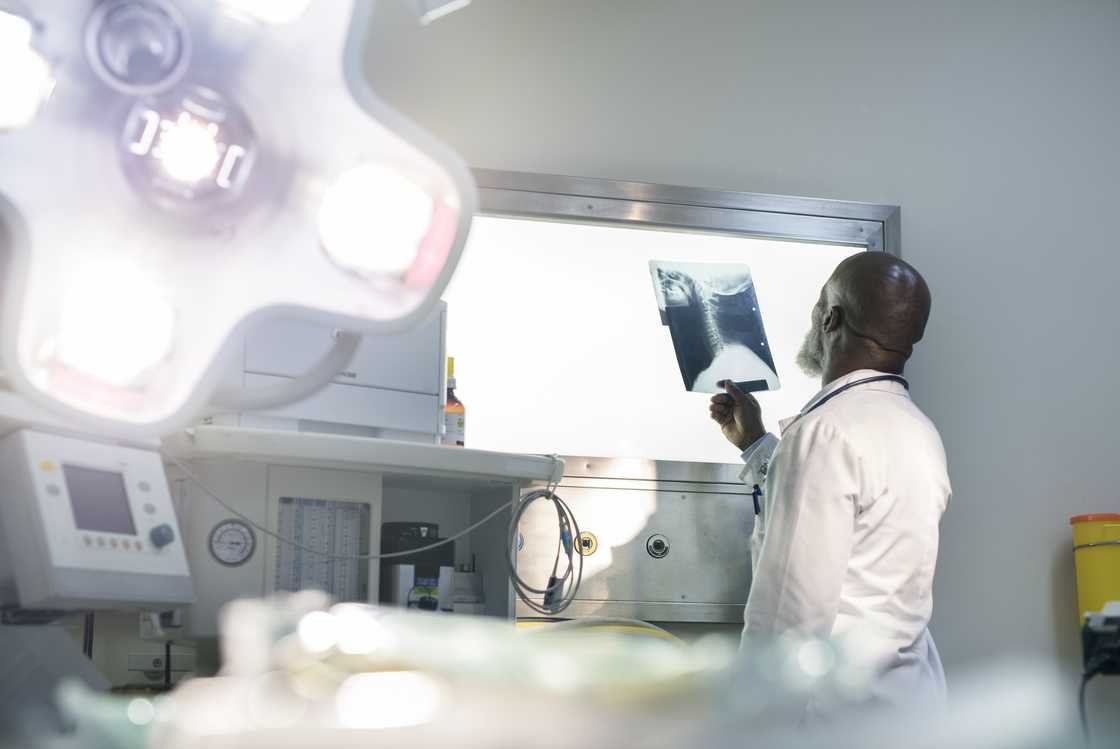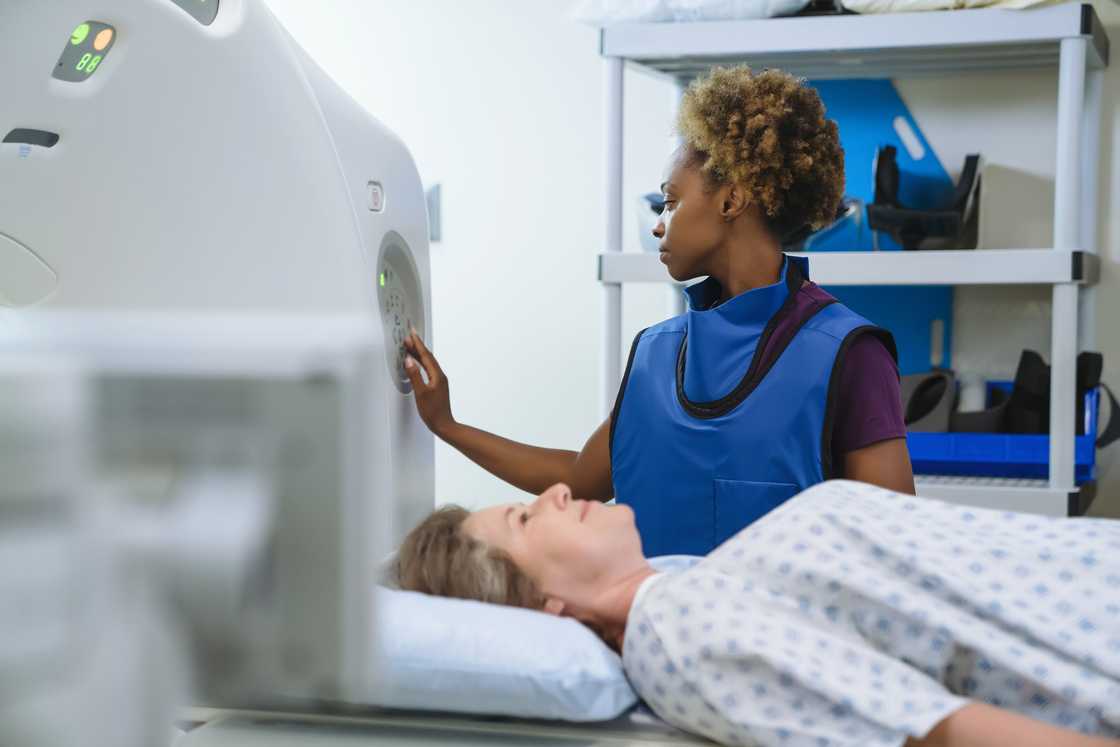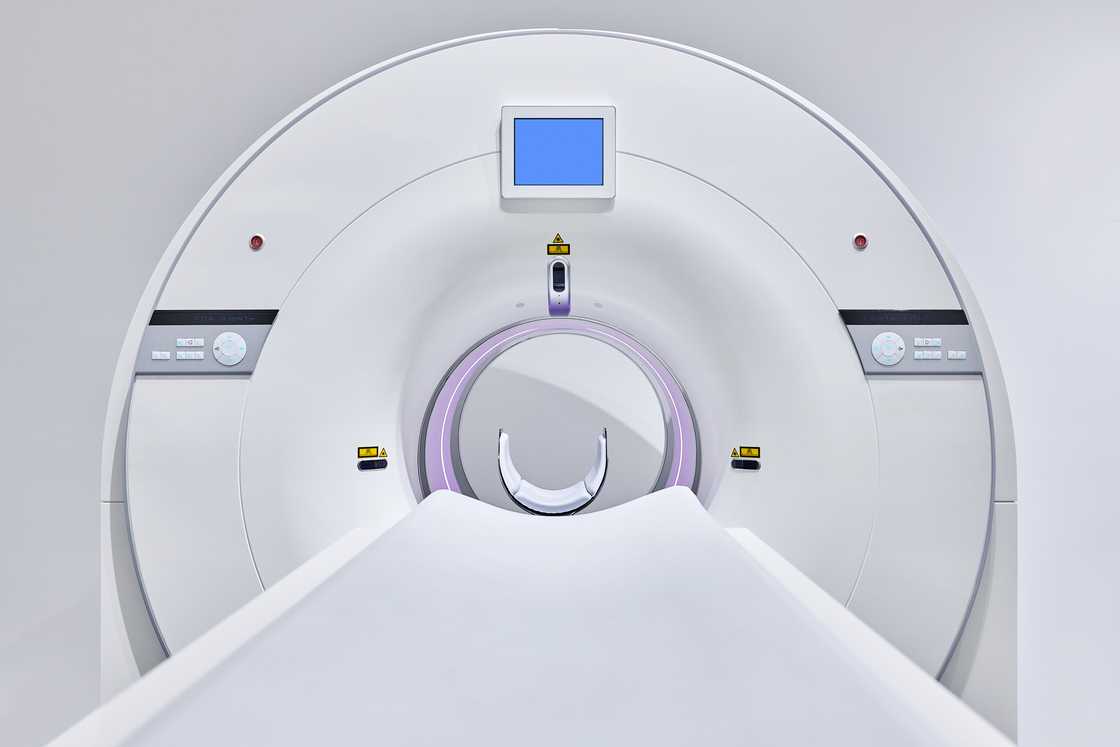Radiographer salary in South Africa: What to expect in 2025
The growing medical imaging industry in South Africa has led to an increase in demand for professionals like radiographers. These professionals play a crucial role in providing the images needed for accurate diagnosis and treatment. This article delves into radiographer salaries and their key responsibilities.

Source: Getty Images
TABLE OF CONTENTS
Several factors influence radiographer salaries in South Africa. The profession allows you to specialize in various areas within the field of medical imaging. One can also work in multiple healthcare settings like hospitals, medical laboratories, private practices, or specialized clinics.
Radiographer's salary in South Africa
The average radiographer's salary per month ranges between R28,000 and R39,000, according to salary data from PayScale and Talent.com. Entry-level radiography salary is estimated to be around R3,700 per month (R44,000 per year), while the highest-earning professionals can take home as high as R75,000 per month (R900,000 per year).
Radiographer salary in Cape Town
A radiographer in Cape Town, Western Cape, earns an average monthly salary of between R24,800 and R33,000, according to Glassdoor and Pay Scale. Experienced professionals in the city can take home over R36,000 per month.

Source: Getty Images
What type of radiographer makes the most money?
Different radiography specialists command different levels of earnings. In South Africa, magnetic resonance imaging (MRI) technologists are some of the highest-earning professionals in the field, with an annual salary of R490,000 (R40,800 per month), as estimated by PayScale. Other professionals have the following average earnings;
Profession | Average Salary |
Ultrasonographers | R450,000 per year/R37,500 per month |
Computed tomography technologist | R330,000 per year/R27,500 per month |
X-ray technician | R240,000 per year/R20,000 per month |
Sonographers | R419,000 per year/R34,900 per month |
Radiologic technologists | R186,000 per year/R15,500 per month |
Interventional radiographers | R382,000 per year/R31,800 per month |
Mammographers | R337,000 per year/R28,000 per month |
Nuclear medicine technologist | R297,000 per year/R24,750 per month |
Radiation therapist | R344,000 per year/R28,600 per month |
Factors Affecting Radiographer Salary in South Africa
How much a radiographer is paid in South Africa is influenced by several key factors, as highlighted below;
- Experience: More experienced radiographers tend to earn higher salaries.
- Specialization: Professionals who specialize in areas such as MRI, CT scans, or nuclear medicine are known to earn more than those in general radiography.
- Location: Salaries can vary significantly based on geographic location. Radiographers working in urban centres like Johannesburg or Cape Town typically earn more than those in rural areas.
- Education and qualifications: Higher educational qualifications and additional certifications can lead to higher pay.
- Type of employer: Radiographer salaries in private hospitals are generally higher compared to wages in public hospitals in SA.
- Bonuses and incentives: Additional benefits such as bonuses, housing allowances, and medical insurance can also impact overall earnings.

Source: Getty Images
What does a radiographer do?
A radiographer's main role is creating medical images using various imaging technologies. Their key responsibilities and tasks are as highlighted below;
- Operating imaging equipment: They use equipment like X-ray machines, CT scanners, MRI machines, and ultrasound devices to capture images of the inside of a patient's body.
- Preparing patients: They help patients get ready for imaging procedures, which may include explaining the process, positioning them correctly, and ensuring they are comfortable.
- Ensuring safety: They follow strict safety protocols to protect patients and themselves from unnecessary exposure to radiation.
- Assisting in diagnosis: The images they produce are used by radiologists to diagnose and treat medical conditions.
- Specialized imaging: Some radiographers specialize in specific types of imaging, such as mammography, nuclear medicine, or interventional radiology, which involves guiding procedures using imaging.

Source: Getty Images
How does one become a radiographer?
To practice as a professional in South Africa, you must fulfil the following radiographer requirements;
- Educational requirements: Aspiring radiographers must enrol in a bachelor of radiography program at an accredited university in South Africa. Some of the institutions offering this program include the University of Johannesburg, the University of Pretoria, and the University of Cape Town. Each institution has entry requirements that you must meet.
- Clinical training: During your studies, you will need to complete clinical placements in accredited training sites. This hands-on experience is important for developing practical skills.
- Registration: To practice legally as a radiographer, you must register with the Health Professionals Council of South Africa (HPCSA).
- Continuous professional development: You should engage in continuous professional development to keep up with advancements in radiographic technology and practices. Pursuing an advanced degree can help you qualify for leadership positions or take on specialized roles to boost your earning potential.
How many years does it take to be a radiographer?
A bachelor of radiography program in South Africa usually takes four years of full-time study. Some programs may extend up to six years, depending on the specific curriculum and any additional requirements.

Source: Getty Images
The radiographer's salary range in SA reflects the profession's promising future and opportunities for advancement. As the healthcare sector continues to evolve, these professionals remain essential with a critical role in medical diagnostics and patient care.
READ ALSO: Actuarial science salary and duties in South Africa
Briefly.co.za shared all you need to know about the earning capacity of actuarial science professionals in South Africa. It is currently one of the most highly sought-after professions with competitive pay.
Actuarial scientists can work in various sectors, including insurance, finance, and investments. Check the article for more on how much they make.
Source: Briefly News




